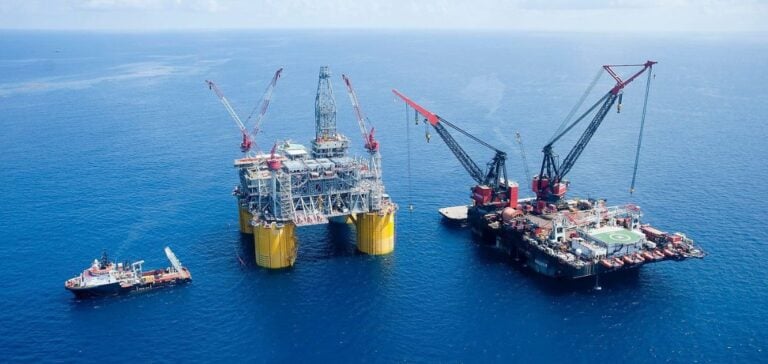The Sunspear project, located in the Green Canyon 78 block, involves connecting a production well to the tension-leg Prince platform, located 12 km to the north in the Ewing Bank 1003 block. The contract, valued at between $50 and $150 million, marks a significant step in the exploitation of subsea hydrocarbons. Subsea7, which specializes in offshore infrastructure, will be responsible for installation engineering and project management, coordinated from its Houston office.
Technical scope and deployment preparations
The mission entrusted to Subsea7 includes the installation of flowlines and subsea equipment at a depth of 500 meters. This complex technical task requires detailed planning and precise execution to minimize environmental impact while maximizing production efficiency. Offshore work will start later this year.
Sunspear drilling potential and results
Analyses carried out following exploratory drilling in July 2023 confirmed the presence of commercial quantities of oil and natural gas. With approximately 260 feet of hydrocarbon column, including 149 feet of net oil pay in the main target, the Sunspear project meets pre-drilling expectations. Initial production is scheduled for the second quarter of 2025, and could position the project as a significant contributor to regional energy supply.
Implications for development partners
Sunspear’s partners, including Talos Energy with a 48% interest, Ridgewood Energy with 47.5%, and Houston Energy with 4.5%, play a crucial role in this development. Their collaboration and investment testify to the viability and profitability potential of the Sunspear field, reflecting confidence in the management and exploitation of offshore oil resources.
The collaboration between Subsea7 and Talos Energy for the development of Sunspear underlines the strategic importance of subsea resources in the energy sector. The project is designed not only to boost oil and gas production, but also to enhance energy security in the Gulf of Mexico.





















